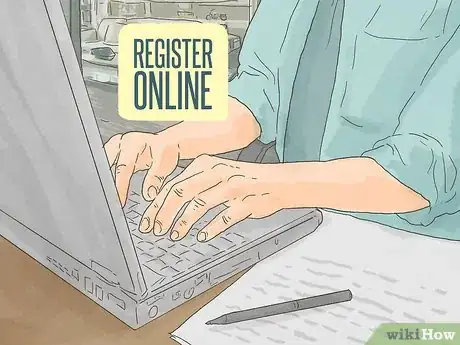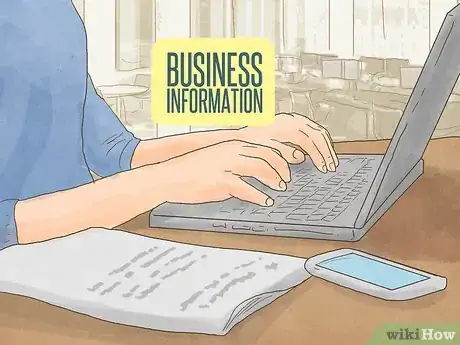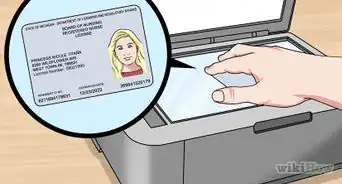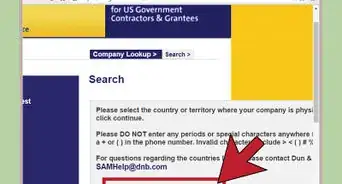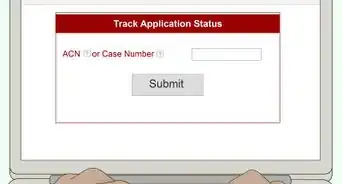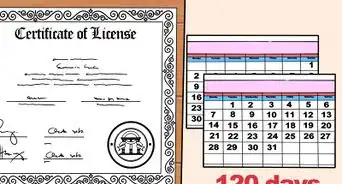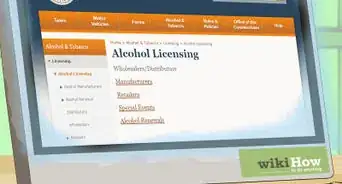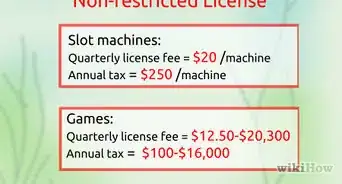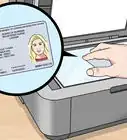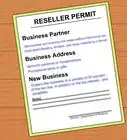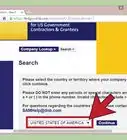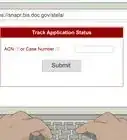This article was co-authored by Clinton M. Sandvick, JD, PhD. Clinton M. Sandvick worked as a civil litigator in California for over 7 years. He received his JD from the University of Wisconsin-Madison in 1998 and his PhD in American History from the University of Oregon in 2013.
This article has been viewed 139,683 times.
A wholesaler is an entity that buys items in bulk and sells the items to resellers as opposed to consumers. If you are engaged in the wholesale business, then you must obtain a wholesale license, which in California is called a “seller’s permit.”
Steps
Identifying Your Need for the Seller’s Permit
-
1Understand a seller’s permit. A seller’s permit is a state license issued by the California Department of Tax and Fee Administration (CDTFA) that grants its recipient permission to sell items at a wholesale or a retail level and to issue resale certificates to suppliers in order to avoid paying sales taxes.
- Because sales tax needs to only be paid one time, by the end purchasers,[1] a wholesaler can avoid paying sales taxes when it buys from a manufacturer by issuing a resale certificate.
-
2Identify if you are engaged in business in California. You must get a seller’s permit if you are “engaged in business” in California. The CDTFA considers businesses to be “engaged in business” in California even if the business’s principal office is located out of state. So long as you have an office, salesroom, warehouse, or other place of business in California, then you are engaged in business in the state.[2]
- You are engaged in business in the state even if your presence in California is temporary.[3]
- Furthermore, you are engaged in business if you have a sales representative, agent, or canvasser in the state, or if you receive rental payments from the lease of tangible property located in California.[4]
Advertisement -
3Identify if you sell property subject to a sales tax. Another requirement is that you intend to sell tangible personal property that ordinarily would be subject to a sales tax. Tangible property subject to the tax includes furniture, toys, antiques, and clothing.[5]
- Additionally, some services and labor costs are taxable. For example, if you make a customized piece of furniture then the total amount that you charge, including the labor charges, would be taxable. However, if all you made were repairs then the labor costs would not be taxable.[6]
- If you have questions about what is taxable, call 1-800-400-7115.
- As a wholesaler, you will need to issue a Resale Certificate whenever you make a purchase of tangible property ordinarily subject to sales tax.[7] If you do not issue this certificate in a timely manner, you will be responsible for paying the tax.
Applying for the Seller’s Permit
-
1Gather information about your business. You may apply for the permit online or in-person. Prior to applying, be prepared to provide the following information:[8]
- Social Security Numbers (corporate officers excluded).
- Driver’s licenses or state identification numbers. You may also provide other forms of identification, including a U.S. passport, U.S. military ID, Consular Identification card, or Visa (E-2).
- Email address (contact and business).
- Federal Employer Identification Number (FEIN).
- State Employer Identification Number (SEIN).
- For corporations: corporate name, number, state and date incorporated.
- Name, address, and phone number of partners, corporate officers, members, or managers.
- Names and phone number of personal references.
- Names and addresses of suppliers.
- North American Industry Classification System (NAICS) code.
- Standard Industrial Classification (SIC).
- Bank information (including the name and address).
- Name and account number of the merchant credit card processor.
- Name, address, and phone number of the person who maintains the company’s books and records.
-
2Choose a registration method. You may register either online or in-person at a CDTFA office. If you have questions about applying, then you should consider applying in-person. If you register online, you can still call 1-800-400-7115 with questions.
- To register online, visit the CDTFA website at www.cdtfa.ca.gov. Then click on the “Permits & Licenses” tab at the top. Click “register online” and then at the Main Menu click on “Register a business activity with CDTFA.” You will be guided through the registration process.
- To register in-person, visit one of the CDTFA’s field offices around the state. A listing of field offices is here.
-
3Create an online account. If you register online, you will need to create an online account, which will require that you pass through various screens. The first screen will ask you what your business activity includes. Check the boxes that apply.
- Then you will be asked if you sell alcoholic beverages, cigarettes, or other specific categories of products. Click any that apply (or none at all).
- After accepting the “Declaration of Intent,” you will be prompted to enter personal information, such as your name and email address. Then you will be prompted to create a username and password.
- Depending on your corporate form, you may be prompted to send certain forms to the CDTFA. For example, if you are seeking a license for a Limited Partnership, then you must send a copy of your partnership agreement to the CDTFA.
-
4Fill out the application. For the application itself, you must enter the business information you have gathered: name, start date, corporate number (e.g., if you run an LLC), FEIN or SEIN, business address and contact, as well as the members of your organization.
- There is generally no fee to register for a seller’s permit.[9]
-
5Update your information. You must notify the CDTFA if you change your business address, change business owners, add or drop a partner, sell your business, buy another business, or discontinue your business.[10]
- If you stop doing business, then your permit is no longer valid.
Warnings
- Your business records may be audited at any time in order to determine if you have paid the correct amount of tax, so be sure to maintain accurate and adequate business records at all times.⧼thumbs_response⧽
References
- ↑ http://www.entrepreneur.com/article/75248
- ↑ http://www.cdtfa.ca.gov/formspubs/pub73.pdf
- ↑ http://www.cdtfa.ca.gov/formspubs/pub73.pdf
- ↑ http://www.cdtfa.ca.gov/formspubs/pub73.pdf
- ↑ http://www.cdtfa.ca.gov/formspubs/pub73.pdf
- ↑ http://www.cdtfa.ca.gov/formspubs/pub73.pdf
- ↑ http://www.cdtfa.ca.gov/formspubs/pub73.pdf
- ↑ http://www.cdtfa.ca.gov/formspubs/pub73.pdf
- ↑ http://www.cdtfa.ca.gov/formspubs/pub73.pdf
About This Article
A wholesale license allows you to sell items at a wholesale or retail level and issue resale certificates to suppliers so you can avoid paying sales taxes. To get a license in California, you’ll need to apply on the California Department of Tax and Fee Administration website or visit one of their field offices. However you apply, make sure you have the necessary details, like personal ID, social security numbers, business address, start date, Federal or State Employer Identification Number, and corporate number if your company is Limited liability. There is generally no fee to apply for a seller’s permit. For more tips from our Legal co-author, including how to keep your wholesale license details up to date, read on!





